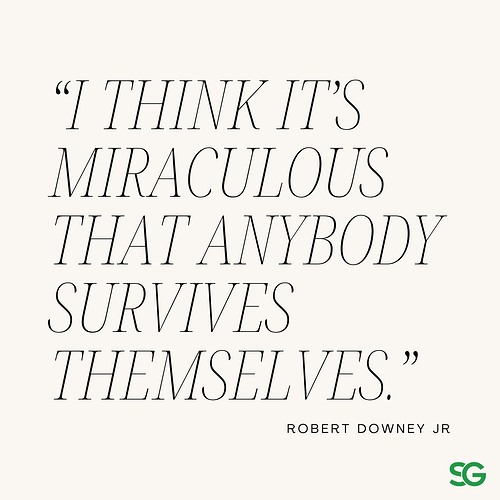Like many across the globe, we tuned in to The Oscars on Sunday. It was of course a night of glitz and glamor, songs and emotional speeches. The event was hosted by Jimmy Kimmel, for the fourth time, and while his monologues are generally funny, we internally cringed when he turned towards actor Robert Downey Jr. He made a controversial joke about the Oppenheimer actor’s past struggles with drug addiction, which was anything but funny. This incident has reignited a crucial conversation about the public discourse surrounding addiction and recovery, challenging us to reflect on the implications of making light of such deeply personal battles.
Understanding Addiction Beyond the Punchline
At the heart of this discourse is a fundamental misunderstanding of addiction. Addiction is not a choice or a moral failing; it is a complex condition that involves interplay between genetic, environmental, and psychological factors. The National Institute on Drug Abuse (NIDA) emphasizes that addiction is a chronic disease, akin to heart disease or diabetes, requiring comprehensive treatment and ongoing management. When public figures mock these struggles, it perpetuates stigma and oversimplifies the profound challenges individuals face in their journey toward recovery.
The Impact of Public Mockery on Recovery
The continued stigma around addiction can have tangible, detrimental effects on peoples willingness to seek help. The fear of judgment and ridicule can deter individuals from accessing necessary treatment and support services. By making light of Robert Downey Jr.'s past addiction, Kimmel’s joke not only undermines the actor’s courageous battle against substance abuse but also sends a discouraging message to others who are in similar struggles. It insinuates that their fight is fodder for entertainment, rather than a serious health issue deserving empathy and support.
Promoting Empathy and Understanding
The narrative needs to shift from mockery to empathy. Public figures, especially those with significant influence, have a responsibility to foster an environment of understanding and compassion. They can play a pivotal role in de-stigmatizing addiction by highlighting success stories, advocating for effective treatment methods, and supporting mental health initiatives. Robert Downey Jr.'s journey from addiction to recovery is not a punchline; it’s a testament to human resilience and the potential for transformation. His story, and those like it, should be treated with the respect and dignity they deserve.
The Role of Humor in Sensitive Topics
Humor is a powerful tool that can bring light to dark situations and make challenging topics more palatable. However, there is a fine line between using humor to shed light on an issue and using it at the expense of those suffering. The key is sensitivity and context. Jokes about addiction can trivialize the issue and alienate those affected. Instead, humor should be used to challenge stereotypes, open up dialogues, and promote a deeper understanding of complex issues like addiction.
Moving Forward with Respect and Sensitivity
As a society, we must strive for a more understanding and compassionate approach to discussing addiction. This involves recognizing the humanity behind the struggle, offering support and understanding, and respecting the privacy and dignity of individuals who are bravely facing their battles with substance abuse. The Oscars incident serves as a poignant reminder of the power of words and the importance of using our platforms to uplift rather than demean.
While comedy and satire are vital aspects of our cultural dialogue, they should not come at the expense of respect and empathy for individuals dealing with addiction. We must do better, when those around us face their addictions, we must celebrate their accomplishments and mourn their setbacks, not make jokes about them regardless of the forum.
We are so proud of all of you and how you face your challenges head on. Keep posting, keep supporting.
All the best,
SG
